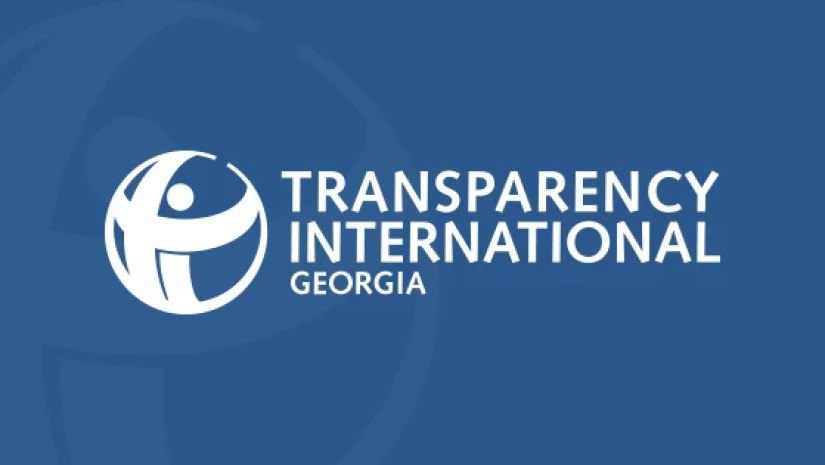The sanctions imposed by the Western countries and the internal political crisis have already had a partial effect on the Georgian economy: the economic growth rate has slowed, the population is transferring their deposits from the lari to USD, the lari has depreciated, the currency reserves of the National Bank have decreased, and the investment climate has deteriorated, - according to the report by TI Georiga.
As of the document, due to the specific characteristics of the Georgian economy, the country is vulnerable to the already imposed and potential sanctions.
The extent to which the economic situation will worsen in the future depends, first of all, on the scale and nature of expected sanctions. And the expansion of the sanctions is, in its turn, caused by the continuation of the political crisis.
Evaluation
Georgia has a small, open economy (with the size of USD 33 billion). The country ranks 26th in the Economic Globalization Index, which confirms a high degree of openness of its economy. We will briefly present the arguments explaining why deteriorating relations with the West and the distancing of Georgia from the EU are going to have a negative effect on Georgia’s economy:
Economic dependence on the West
The foreign economic relations of Georgia are quite diversified, but the country remains most dependent on Western nations. In 2023, the financial resources received by various methods from the EU, the US, and the UK equaled up to 30% of the Georgian economy.
A considerable part of banking transactions are conducted in foriegn currenies
Fifty-four percent of the deposits in the Georgian banking system and 43% of the loans given are in a foreign currency (USD or euro). The real estate market operates in USD or euro. Seventy-five percent of the public debt is in a foreign currency. The state budget is running a deficit. Fifty-three percent of the deficit is covered by loans from the governments of the Western countries and Western international financial institutions (WB, EBRD, ADB, EIB, etc.). The imports of goods and services amount to 58% of Georgia’s GDP. The foreign trade deficit is USD 10 billion, which is balanced by tourism, remittances of emigrants, investments, and loans. Most of the amounts received from these sources come from Western countries. This reality shapes a specific nature of Georgia’s economy, making it vulnerable to Western sanctions.
Often Georgian companies are registered in Europe
In addition to the fact that Georgia has close economic ties with Western countries, large Georgian businesses also often choose various Western countries as the place of registration. The most relevant places in this regard are the UK, the Netherlands, Luxembourg, Malta, and various offshore territories under the jurisdiction of Western countries. This factor amplfies the impact of Western sanctions on large businesses.
The exchange rate of the lari declines after anti-Western statements
Economic problems and the negative expectation caused by internal or external shocks (in this case, sanctions) reflect, first of all, on the exchange rate of the lari. And the depreciation of the lari contributes to inflation and to the increase of the loan servicing costs, which impoverishes the population.
In the years 2022-2023, the exchange rate of the lari strengthened due to the effect of the post-pandemic period and the influx of billions of additional funds from Russia. However, from the second half of 2023, the effect of the Russian money decreased, and the lari started to depreciate, with the price of USD 1 rising from GEL 2.5 to GEL 2.7.
The year 2024 has shown that even discussions about possible sanctions on the part of the West worsened expectations in Georgia and led to the depreciation of the lari. The adoption of the „Russian law“ by the Georgian Dream caused the lari to depreciate by 6%, despite the fact that the National Bank sold USD 220 million in April and May. The exchange rate came under repeated pressure in September-October 2024, when the U.S. included two high-ranking officials of the Ministry of Internal Affairs in the Magnitsky Act and prohibited tens of members of the government from entering America. Besides, the Western countries stopped giving new grants to the government of Georgia. The situation was also exacerbated by the upcoming elections. In September and October, the National Bank sold USD 700 million to maintain the exchange rate of the lari at 2.72.
The statement of November 28 aggravated the political crisis and increased pressure on the exchange rate of the lari
After Irakli Kobakhidze’s statement on November 28, the political crisis and instability deepened in the country, and the sanctions were expanded, but, unlike the pre-election period, the National Bank allowed the decline of the exchange rate of the lari (to 2.88) and purchased USD 29 million in December. Currency interventions conducted in January will become known later.
The reserves of the National Bank have dwindled
In 2024, the National Bank sold USD 435 million more in total than it purchased, although the lari still depreciated by 4.4% on an annual basis. In 2024, the official international reserves of the National Bank (which mainly include foreign currencies and gold) decreased by USD 561 million. The adequacy of reserves is measured by their ratio to imports over a three-month period. At the end of 2024, reserves were 5% below the level of exports over a three-month period, whereas at the end of 2023, they had exceeded this figure by 24%.
The population has transferred part of their deposits from GEL to USD
Since October 2024, there has been a trend of transferring deposits in Georgian banks to foreign currencies. This is one of the reasons for the depreciation of the lari over the past three months and, at the same time, is indicative of a pessimism of the population. When a crisis is looming, people prefer to keep their savings in more stable currencies, such as the USD and euro.
At the end of September 2024, there were deposits of 29.9 billion in lari in commercial banks, which decreased by GEL 2 billion in October-December. Such a drop has never been observed over a period of three months. In parallel, deposits in foreign currencies increased by USD 786 million. Deposits in foreign currencies have been on the rise especially since May 2024, which indicates that the transfer of deposits to foreign currencies started from the time when the „Russian law“ was adopted.
Consequences for the Georgian economy
According to the preliminary data of Geostat, the economic growth in 2024 amounted to 9.5%; 9.5% is a high figure, however, while the average monthly growth was 9.6% from January to October, the growth slowed to 7.5% in November and to 6.7% in December. The declining growth rate does not mean that we have an economic crisis, but it is a result of reduced activity in certain sectors of the economy.
In the first 3 quarters of 2024 (the figures of the 4th quarter are not yet known), the foreign direct investments entering Georgia decreased by 40%. The investments decreased by 55% in the 3rd quarter, although there was a bigger, 70% drop in the 1st quarter (January-March), due to which we cannot say that the decrease in investments was caused by the adoption of the „Russian law“. The adoption of the „Russian law“, internal political instability, and the sanctions are going to reflect on future investments.
To summarize, due to the internal political instability and sanctions, the fear of isolation has already reflected, to some extent, on the structure of bank deposits, the exchange rate of the lari, and the foreign currency reserves of the National Bank. Activity has decreased in certain sectors of the economy (e.g., restaurants and hotels), although the overall economy has not contracted.























